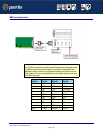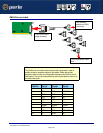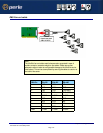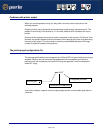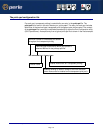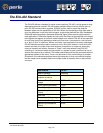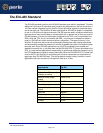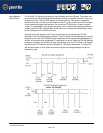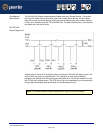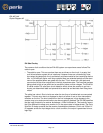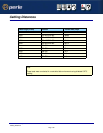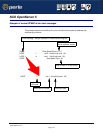
UltraPort Serial Adaptors User Guide
The EIA-422 Standard
Page 133
The EIA-422 Standard
The EIA-422 defines a standard for serial communications. EIA-422 is a high speed or long
distance transmission method. EIA-422 system software differs little from familiar point to
point EIA-232 communication systems. EIA-422 is often used to extend the distance
between nodes over the capabilities of EIA-232. When communicating at high data rates or
over long distances in real world environments, single ended methods are often inadequate.
Differential data transmission (balanced differential signal) offers superior performance in
most applications. Differential signals can help nullify the effects of ground shifts and induced
noise signals that appear as common mode voltages on a network. EIA-422 is also specified
for multi-drop (party-line) applications where only one driver is connected to, and transmits
on a ”bus” of up to 10 receivers. While a multi-drop “type” application has many advantages,
EIA-422 devices cannot be used to construct a truly multi-point network. A true multi-point
network consists of multiple drivers and receivers connected on a single bus, where any
node can transmit and receive. However a “Quasi” multi-drop network using EIA-422
consisting of 4 wires can enable a single master in a system to send a command to one of
several slave devices on a network. The master node simply prefixes the commands with the
appropriate address of the slave. There is no data echo or turn around delays to consider.
Since each of the slaves transmitters shares the same pair of wires, care should be taken
that the master never requests data from multiple nodes at the same time or data collision
can occur.
Specifications EIA-422
Mode of operation. Differential
Total number of Drivers and
receivers on one line
1 driver, 10 receivers
Maximum Driver Output
Voltage
-0.25V to +6V
Driver Output signal loaded +/-2.0V
Driver Output signal unloaded +/-6V
Driver load Impedance
(Ohms)
100
Slew Rate fast/slow
Receiver Input Voltage range -10V to + 10V
Receiver Input Sensitivity +/-200mV
Receiver Input Resistance
(Ohms)
4k min.



